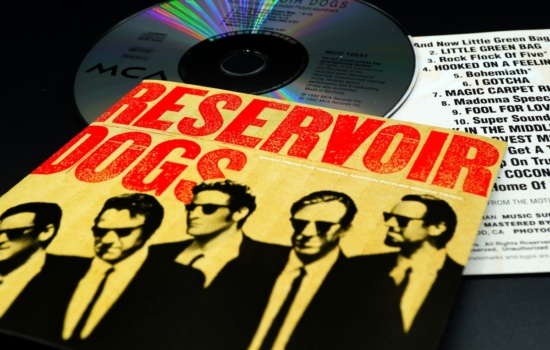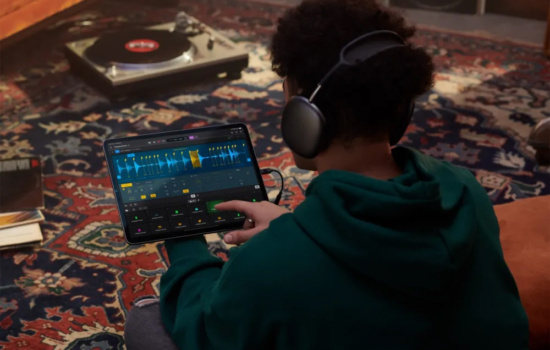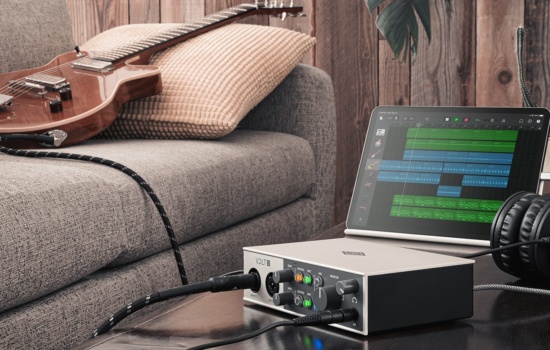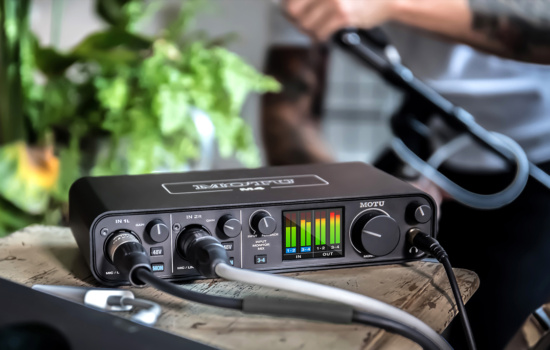Recording Studio Manager
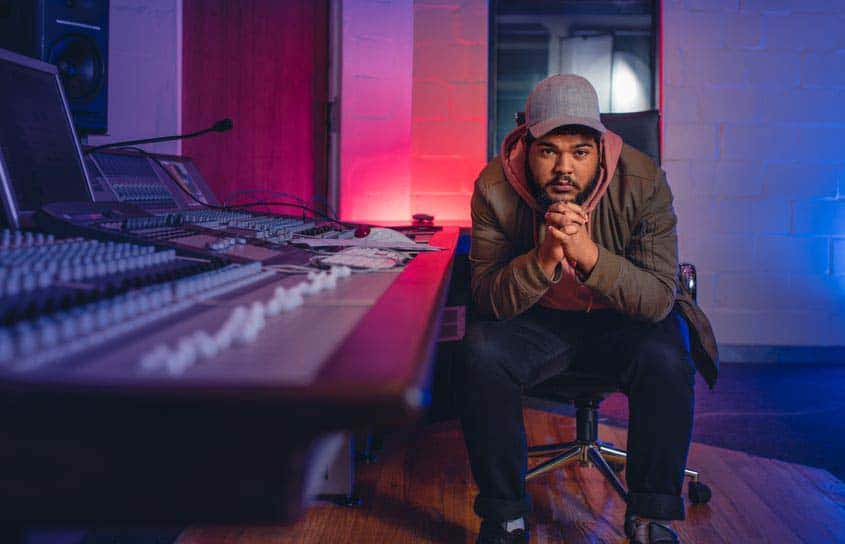
How To Become a Recording Studio Manager
Career Description
“There’s really kind of two sides to it,” Jeff Barnes tells us of his work as the President/Recording Studio Manager at Record Plant, the legendary Los Angeles studio that has hosted everyone from Black Sabbath to Kanye West.
“There’s the GM side: making sure the building is both looking and operating correctly. That’s going to entail everything from making sure if someone punched a hole in the wall (intentionally or accidentally) that gets dealt with. [It’s handling] those types of things to make sure our facility is presented as well as it can be. On the VP side, it’s more of the business operations side of things [like] dealing with budgeting.”
“Also, I handle all the booking, so making sure we’re on track both financially and numbers-wise in terms of how many bookings we’re getting in a particular month.”
What’s a typical day on the job like? “If I were to come in on a day like today, the first thing I’m going to do is walk through the entire studio, lay eyes on everything and makes sure it looks the way I want it to look,” Barnes explains.
“If there’s anything that needs to be addressed I communicate it to the Runners. From the point I’ve woken up I’ve looked at emails to see where we’re at in that world and dealt with it prior to showing up. (I sort out the medium-priority emails and I deal with them at midday.) During the day it’s taking phone calls for different bookings and in the GM role, it can, at times, be sort of a reactionary position.”
“For example, on a day like today, it’s warm outside so if an AC goes down we’ll need to deal with that. If it’s a day where we’re not that busy it’s not that big of an issue but if it’s a busier day, which most of them are, we’ll have to deal with what’s wrong with the AC, how long will it take to get fixed, and see if we need to move the session to another room.”
“It starts in the GM world of managing a building and spreads out pretty quickly. At the end of the day, I do more views of the financial side of things and make sure that’s communicated to the owners.”
“Additionally, as it comes up, making sure any prep we need to do for sessions is done. If we get a session with a big piano player like a John Legend or an Alicia Keys, making sure we have the piano they want in the room.”
“The majority of that will be handled by Assistant Engineers and the tech department but I still want to keep an overhead view of everything to make sure we’re keeping up with all our responsibilities.”
In their daily work, Recording Studio Managers work alongside Recording Engineers and Record Producers, as well as with Recording Groups, Singers, Session Musicians and Session Singers, plus any other artists or record label execs involved in the process of creating an album.
Salary
The average annual salary for Recording Studio Managers is approximately $47,400. The salary range for Recording Studio Managers runs from $34,000 to $69,000.
Salaries for a Studio Manager can vary greatly. A Studio Manager for a small, independent studio most likely will not earn as much as a Manager at a big name studio or a corporately-run studio. Of his position, Barnes says, “It is salaried. [In terms of benefits], I believe it depends on the studio. I know there are some Studio Managers who get benefits and some that don’t.”
Hey, what do you think about trying our new Music Career HelperMusic Career Helper really quick? It’s totally free and could help get your career moving fast! Give it a try. It’s totally free and you have nothing to lose.
Career Outlook
“At the end of the day, my ‘hours’ are Monday through Friday, kind of a nine-to-five,” Barnes says.
“There are pretty straightforward hours that I’m actually in the office. I typically don’t work holidays but I am available on the phone 24/7 and that really is important to this role. In today’s recording industry, with the clients we deal with, we get a lot of last-minute bookings. Some of our bigger clients have been brought in to our studio through a late-night booking; they had a good experience and ended up booking a specific amount of time.”
Career Path
Recording Studio Managers usually start as Interns or Runners at a studio. They may then work their way up to a position as Head Runner, Assistant Studio Manager, General Manager, or Booking Manager, depending on what’s available at the studio.
In this career, advancement can mean taking on greater ownership of the studio by assuming a VP role in addition to GM duties. It can also mean going to work for a famous studio that offers prestige and a bigger check, or it can mean opening one’s own studio.
“On average, most of our employees we hire are going to be hired as a Runner, the main entry-level position at the studio,” Barnes says. “A lot of studios do internships; we specifically do paid running positions. We try to offer a higher level of service than other facilities and it’s our opinion that someone in that role who’s getting paid will be more accountable and committed to what we’re doing. That’s the best way into these studios.”
“There are obviously a lot of recording schools these days as options. I would personally say it’s less about the school you went to and less about the resume and more about you as a person. Obviously, your resume needs to get you into the door for an interview but we’ve turned away a ton of people with good resumes because they’re not a good fit for the studio.”
“It’s a big team effort and I can’t do my job without Runners and Assistants doing their jobs well so we are very intentional about who we hire. The running position is the easiest way in.”
“Obviously, in theory, someone could send their resume in and say ‘I want to pursue studio management’ and, depending on where they’re at, that might land well with the studio. For us, my management team is just my assistant and me, so to bring someone in as an Intern or entry-level position doesn’t really make sense.”
“But down the line, if you communicate you’d love to learn what we’re doing here, maybe for a few days we bring you in off the clock to show you the ropes. If my assistant is going away for a couple weeks, that would be a good opportunity for someone else to step in.”
- “Even at a younger age, you can learn about the recording process. In that vein, understanding there’s going to be songwriting, then you’re going to do tracking, and just the progression it’ll go through. Also [learn] some of the techniques and tools used.
- Figure out what genre of music and what about running a studio excited you. We predominantly cater to Top 40, hip-hop, and bigger DJs and not everyone is going to want to work in a studio that caters to that. Historically, we got a lot of rock ’n’ roll but we don’t do much these day. So if you’re in love with rock ’n’ roll this might not be the best studio for you. Vice versa, if you’re into hip-hop, don’t go to a rock studio.
- Figure out what types of clients you want to be around and try to find studios that will be a good fit for that. Then do some research on that studio. A lot of studios have changed names and owners throughout the years so understand the background of the place you’re hoping to work.
- Go back to those professional organizations mentioned earlier and start to learn some of that stuff. There’s tons of knowledge out there.”
Experience & Skills
Experience in a studio environment is the biggest prerequisite for managing a recording studio.
Barnes tells us, “I started out as a Runner at a studio. I was pursuing engineering and ended up taking on the Head Runner position. I was asked to fill in during a leave of absence for the Studio Manager, who I’d been working alongside a fair amount. Then I was eventually offered that role.
“Really, in addition to the tech side, it’s just understanding the recording process and the timelines involved. For that reason, I think starting off and working your way into a Booking Manager role (someone who handles scheduling and invoice generating) is going to give you a good foundation to build up into this so you understand the timelines and how certain projects are going to operate differently than others.”
“To give you an example, if we do a Ty Dolla $ign, session it’s going to be very different than an Alicia Keys or Elton John session. They could all be vocals but they’ll be done very differently. Understanding the unique demands of each project will come from that prior experience.”
“I think the best approach is similar to what I did. The reality of getting into a bigger studio like this can be difficult because there’s obviously a lot of demand and not a lot of positions. Get into an entry-level position and prove you’re willing to work hard and get it done. Then, when appropriate, express you want to get into more of a management role and build from there.”
“You just need to be flexible,” Barnes says, “not only in yourself but — if you’re in a relationship with someone — with them. My wife is understanding that if I get a call at 10 pm at the house I’m going to take the call because if I don’t take the call they’re going to go somewhere else. That’s just the nature of the Top 40, hip-hop genre we deal with.”
“Flexibility is a necessity, whether it’s involving late-night phone calls or, for example, I had a big name Producer walk in an hour ago and he said, ‘I need a studio for ten days’ and we said, ‘Ok, we’ll make that happen.’ So it’s being able to take those things in stride and put it all together.”
“There will be problems and things will come up, especially on the GM side. Most of these studios are older buildings and there are just inherent issues with that. It doesn’t mean they’re not beautiful, nice places to be but old buildings do have issues sometimes. Without flexibility, you wouldn’t be happy for very long.”
Education & Training
The ideal educational background for a Recording Studio Manager would include experience in both business management and recording. Some come from Production/Engineering programs while others have Music Business degrees.
Still others simply have hands-on experience and a knowledge of the recording process. “Like I said, there are two sides to what I do,” Barnes explains.
“There’s the business and finance side; you need to understand the financial elements, communicate with the owners, and formulate a budget whether it’s larger scale for the month or year or if it’s a small scale thing like ‘we need to get a new computer, here’s how much it will cost.’ That’s integral to what I do.
“At the same time, we’re a recording studio and it’s different than other businesses so it’s beneficial to understand the recording and tech side as well. It’s not mandatory. There are other people at the studio who will understand that, but in my experience — I went to engineering school myself, that was my initial focus — having the technical background and being able to use and understand the equipment has been a huge asset.”
“So when I go to the owners, who don’t have the same tech understanding, I’m able to bridge the gap and say ‘here’s a problem that needs to be resolved’ and put it into layman’s terms. Similarly, the reality is, when we get to an Assistant Engineer, they’re always going to want to get newer, cooler gear and it’s helpful to be able to discern what are the wiser decisions for our clients rather than having an unrealistic list of cool gear.”
Additional Resources
“Our job tends to fly under the radar so I don’t know of anything specific to studio management,” Barnes tells us when asked about resources for aspiring Recording Studio Managers. He adds, “For studios in general, I’d say become a member of the Audio Engineering Society (AES).”
They’ve got a lot of educational resources. Also, The Society of Professional Audio Recording Services (SPARS) has some really good resources. I think Grammy, as well, with the P&E Wing and NARAS also will have resources. There are a handful of things you’re able to read or view for no cost on their site but I imagine, for the more in-depth education or knowledge, it’s going to require a membership.
“I would be conscientious of which ones I was looking for if I was specifically looking for studio management because the cost can add up. On the management side, Rose Mann Cherney, the former president of the Record Plant did a Pensado’s Place on women who run studios and they talk about some good stuff in there.”
FAQ
What is the single biggest suggestion you would give to someone wanting to get into this career?
“Don’t do it for the wrong reason. When you look at Record Plant’s discography you see we do Justin Bieber, Alicia Keys, Beyonce, Black-Eyed Peas — and you know they’ve all probably been here. That’s glamorous and exciting, but at the end of the day, you have to do this because you love the music and want to create an atmosphere so artists can make the best music they can make.”
“If your goal is to be around famous people or you want to go down any other avenue other than providing this space, I don’t know if it’s necessarily the right fit because it requires a lot of flexibility to begin with and if you don’t enjoy what you do — the process of the recording — it won’t work.”
“We had a project in January that was very big and we needed to rent additional equipment for additional rooms because they had so much of our gear in their rooms. The Producer of that session was like, ‘I didn’t know if you’d want to have us here because of all the gear’ and we’re like ‘No, this is why we got into this!’ It’s exciting to see a studio filled with gear and great musicians using the gear.”
What’s the #1 mistake people make when trying to get into this career?
“If you’re not doing this because you love what a recording studio is capable of being I don’t think that’s the right reason to do it. You’re going to burn out really quickly.”
What is the question people should ask about this career but rarely do?
“The only thing I can think of is potentially unique to my position because a lot of these other studios are owned by corporate companies. When it comes to the ‘people skills’ and HR management, that’s a whole other job in itself and we’re really intentional and conscientious of who we hire because of that.”
“The best approach to human resource issues is to not have any issues so if we’re able to assemble a team that’s able to work well together and accomplishes what we want to accomplish that’s great. In that sense, we really pride ourselves on doing a lot of work to hire the right people so we can have that higher level of service provided. We usually interview upwards of ten to twenty people to hire for one position.”
“Just because one studio doesn’t hire you doesn’t mean another one won’t. Don’t get discouraged by that. I’ve hired people who are really smart and hard-working but maybe better suited for a smaller facility. We have four bigger studios and tracking spaces downstairs and three production rooms upstairs so when it’s running on all cylinders, it’s a lot of work and some people might be more successful in a smaller setting.”
What is one thing I should have asked which I didn’t?
“The only other thing I can think of is which other jobs are integral to what I do — because it’s a huge team effort.”
“The Runners who do all the cleaning, maintenance and picking up food for clients and the Assistant Engineers, who have done a lot of work to understand their craft and be prepared for any technical requests or issues that may arise: they’re the first line of defense. They’re in there with the client all day. Our technical staff makes sure everything is working.”
“My assistant: if I want to go on vacation I need someone to take over for me. There’s only so much time in the day and I need to focus on financial stuff. If there are any issues downstairs like ‘so-and-so’s beverages aren’t right,’ she’ll take care of it.”
If you could describe in one word what makes you successful, what would it be?
“Flexibility. The best advice I got from somebody in this industry when I was younger was from Fabian Marasciullo, a big Mix Engineer who was a client of ours. He said, ‘You should never turn down a job in this business because it’s not what you thought you’d be doing.”
“When I got into this business I thought I wanted to be a Recording Engineer; I ended up finding something that worked very well for me on the management side of the business. So, having the flexibility there and the flexibility to perform the job.”
Extra Credit: The Beatles or Rolling Stones?
“Beatles, hands down. We’ve done a lot of work throughout the years with the Rolling Stones, but Beatles, always.”
Sources

Jeff Barnes
Jeff Barnes is the President and General Manager of the famed Record Plant Recording Studio in Los Angeles, named by Billboard as one of the world’s top recording studios. The studio has played host to artists like Black Sabbath, Kanye West, Justin Bieber, Beastie Boys, Eagles, Fleetwood Mac, Jimi Hendrix, Stevie Wonder, Pearl Jam, and George Harrison.
Barnes has been featured in Music Connection and Mix Online.
References
- 1. "Studio Manager Salaries in United States". Glassdoor.com. published: Dec 22, 2019. retrieved on: Dec 20, 2019



















